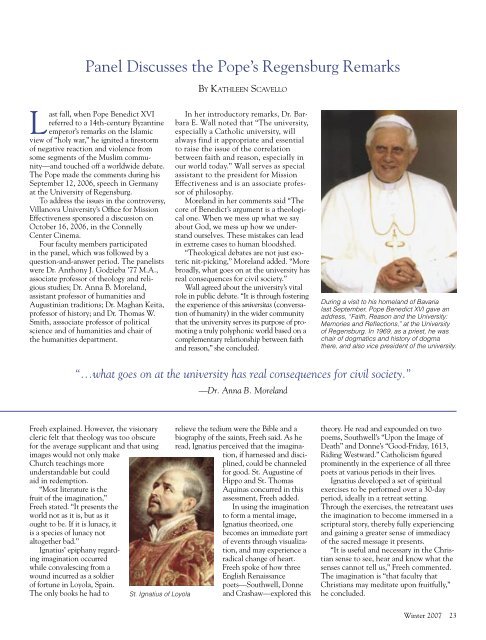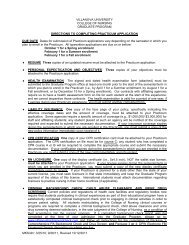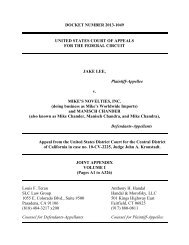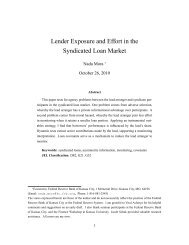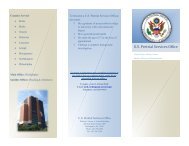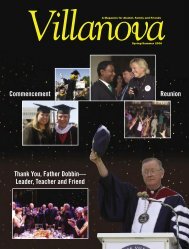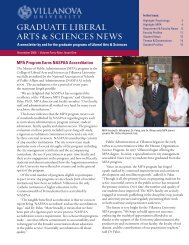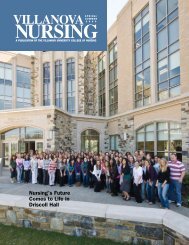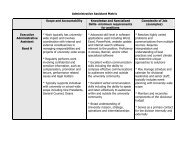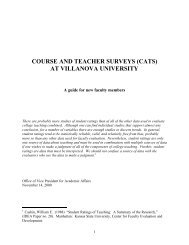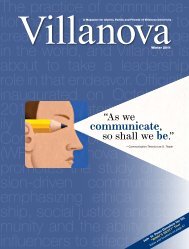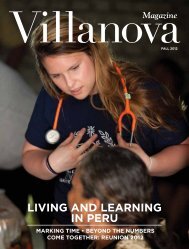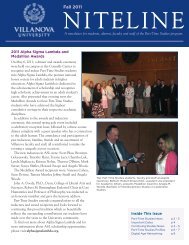Your Alumni Association - Villanova University
Your Alumni Association - Villanova University
Your Alumni Association - Villanova University
Create successful ePaper yourself
Turn your PDF publications into a flip-book with our unique Google optimized e-Paper software.
Panel Discusses the Pope’s Regensburg RemarksBY KATHLEEN SCAVELLOLast fall, when Pope Benedict XVIreferred to a 14th-century Byzantineemperor’s remarks on the Islamicview of “holy war,” he ignited a firestormof negative reaction and violence fromsome segments of the Muslim community—andtouched off a worldwide debate.The Pope made the comments during hisSeptember 12, 2006, speech in Germanyat the <strong>University</strong> of Regensburg.To address the issues in the controversy,<strong>Villanova</strong> <strong>University</strong>’s Office for MissionEffectiveness sponsored a discussion onOctober 16, 2006, in the ConnellyCenter Cinema.Four faculty members participatedin the panel, which was followed by aquestion-and-answer period. The panelistswere Dr. Anthony J. Godzieba ’77 M.A.,associate professor of theology and religiousstudies; Dr. Anna B. Moreland,assistant professor of humanities andAugustinian traditions; Dr. Maghan Keita,professor of history; and Dr. Thomas W.Smith, asssociate professor of politicalscience and of humanities and chair ofthe humanities department.In her introductory remarks, Dr. BarbaraE. Wall noted that “The university,especially a Catholic university, willalways find it appropriate and essentialto raise the issue of the correlationbetween faith and reason, especially inour world today.” Wall serves as specialassistant to the president for MissionEffectiveness and is an associate professorof philosophy.Moreland in her comments said “Thecore of Benedict’s argument is a theologicalone. When we mess up what we sayabout God, we mess up how we understandourselves. These mistakes can leadin extreme cases to human bloodshed.“Theological debates are not just esotericnit-picking,” Moreland added. “Morebroadly, what goes on at the university hasreal consequences for civil society.”Wall agreed about the university’s vitalrole in public debate. “It is through fosteringthe experience of this universitas (conversationof humanity) in the wider communitythat the university serves its purpose of promotinga truly polyphonic world based on acomplementary relationship between faithand reason,” she concluded.During a visit to his homeland of Bavarialast September, Pope Benedict XVI gave anaddress, “Faith, Reason and the <strong>University</strong>:Memories and Reflections,” at the <strong>University</strong>of Regensburg. In 1969, as a priest, he waschair of dogmatics and history of dogmathere, and also vice president of the university.“...what goes on at the university has real consequences for civil society.”—Dr. Anna B. MorelandFreeh explained. However, the visionarycleric felt that theology was too obscurefor the average supplicant and that usingimages would not only makeChurch teachings moreunderstandable but couldaid in redemption.“Most literature is thefruit of the imagination,”Freeh stated. “It presents theworld not as it is, but as itought to be. If it is lunacy, itis a species of lunacy notaltogether bad.”Ignatius’ epiphany regardingimagination occurredwhile convalescing from awound incurred as a soldierof fortune in Loyola, Spain.The only books he had toSt. Ignatius of Loyolarelieve the tedium were the Bible and abiography of the saints, Freeh said. As heread, Ignatius perceived that the imagination,if harnessed and disciplined,could be channeledfor good. St. Augustine ofHippo and St. ThomasAquinas concurred in thisassessment, Freeh added.In using the imaginationto form a mental image,Ignatius theorized, onebecomes an immediate partof events through visualization,and may experience aradical change of heart.Freeh spoke of how threeEnglish Renaissancepoets—Southwell, Donneand Crashaw—explored thistheory. He read and expounded on twopoems, Southwell’s “Upon the Image ofDeath” and Donne’s “Good-Friday, 1613,Riding Westward.” Catholicism figuredprominently in the experience of all threepoets at various periods in their lives.Ignatius developed a set of spiritualexercises to be performed over a 30-dayperiod, ideally in a retreat setting.Through the exercises, the retreatant usesthe imagination to become immersed in ascriptural story, thereby fully experiencingand gaining a greater sense of immediacyof the sacred message it presents.“It is useful and necessary in the Christiansense to see, hear and know what thesenses cannot tell us,” Freeh commented.The imagination is “that faculty thatChristians may meditate upon fruitfully,”he concluded.Winter 2007 23


